
I’ve said it before, and I’ll say it again – every pregnancy is different. And so too is the post-natal period, or months following the delivery of your baby. My son was born at the end of September and in the weeks since then I’ve developed a troubling new symptom – biliary colic or “gallstone attacks”.
What is the gallbladder?
The gallbladder is a small pear-shaped organ that sits next to the liver. It’s main function is to store and concentrate the bile that is produced in the liver. When fat is consumed in the diet the gallbladder contracts to release bile back into the digestive tract for fat digestion.
What are gallstones?
 Gallstones are accumulations of crystals that join together to form stones. The stones can be composed of cholesterol (the most common), calcium salts, bilirubin or other bile pigments. They can vary in size from very small (grains of sand or gravel) to as large as a golf ball. A person can have gallstones and never know they are there. Other people develop symptoms known as biliary colic or cholecystitis (inflammation of the gallbladder).
Gallstones are accumulations of crystals that join together to form stones. The stones can be composed of cholesterol (the most common), calcium salts, bilirubin or other bile pigments. They can vary in size from very small (grains of sand or gravel) to as large as a golf ball. A person can have gallstones and never know they are there. Other people develop symptoms known as biliary colic or cholecystitis (inflammation of the gallbladder).
Gallstones are more common in women, people who are overweight, over 40 years of age, during pregnancy, after sudden weight loss or in people who consume a high-fat, high-sugar, low-fiber diet.
What are the symptoms of biliary colic or cholecystitis?
The symptoms of gallstone attacks vary but typically include some or all of the following:
- Abdominal pain (often right sided)
- Back pain or shoulder pain (often right sided)
- Nausea and vomiting
- Pain that begins after consuming a fatty meal
- Pain that gets steadily worse
- Pain lasting from 30 minutes to several hours
- No symptoms between attacks
- Fever (can indicate serious blockage – see a doctor immediately)
The best way to determine if you do have gallstones is with an abdominal ultrasound.
What is the recommended diet for people with gallstones?
Certain foods are better tolerated by people with gallstones. In general a low-fat, high vegetable and fruit diet is the best for managing symptoms of gallstones. A vegetarian diet is associated with a low incidence of gallstones.
Foods that are recommended for people with gallstones:
- Beets (very good for supporting the liver and gallbladder)

- Cucumber
- Green beans
- Sweet potatoes
- Avocado
- Artichoke
- Tomatoes and tomato sauce
- Okra
- Cold water fish (salmon, trout, herring, mackerel) and fish oils
- Grapes and organic grape juice
- Apples and organic apple juice
- Apricots
- Blue and blackberries
- Currants
- Figs
- Guava
- Lemons
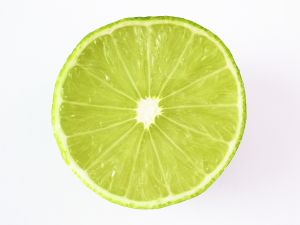
- Pears
- Papaya
- Prunes
- Coconut
- Flax seed oil
- Vinegar
- Vegetable juices
- Garlic
- Ginger
- Turmeric
- Onions (may aggravate sensitive individuals)
- WATER – incredibly important. Drink 2 liters per day.
- Peppermint tea
- Herbal teas
Foods that should be avoided:
- Deep fried foods
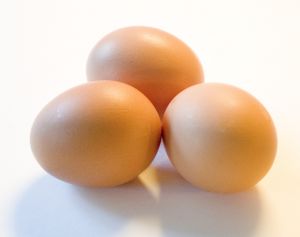
- Eggs (cause symptoms in up to 95% of patients)
- Pork
- Turkey
- Chicken
- Beef
- Nuts
- Legumes
- Dairy (milk, butter, cheese, cream, ice cream)
- Gluten grains (wheat, barley, spelt, rye, kamut)
- Corn
- Coffee (can decrease the risk of developing gallstones, but can aggravate existing gallstones)
- Black tea
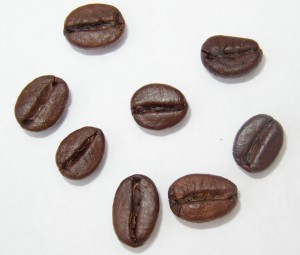
- Oranges, grapefruit
- Margarine
- Chocolate
- Alcohol
- Cabbage
- Cauliflower
- Carbonated beverages
- Food allergens
In addition to avoiding these foods you should also avoid large meals, especially late in the evening. Eat several smaller meals throughout the day and focus on consuming greater amounts of fruit and vegetables. Once you are symptom free and ready to re-introduce dairy and meat products, select low fat options.
While weight loss is often desirable for people with gallstones it is important not to lose weight too quickly – this can lead to a gallbladder crisis. Instead focus on slow, steady weight loss and regular aerobic exercise (which also supports gallbladder health).
Are there naturopathic treatments for gallstones?
Yes. In addition to a healthy diet there are several supplements that can support the function of the gallbladder and decrease symptoms of gallstones.
Omega 3 fish oils – Fish oils reduce the formation of gallstones by enhancing bile flow and blocking cholesterol formation in the bile. A combined EPA-DHA fish oil supplement should be taken by anyone with gallstones, or risk factors for the development of gallstones.
Increase dietary fiber – Diets high in water-soluble fiber (from fruits, vegetables, oat bran and guar gum) decrease cholesterol levels – a primary goal of gallstone treatment. A good source of fiber is to mix 1 tablespoon of ground flaxseed into one serving (8oz or ½ cup) of organic applesauce and consume daily.
Vitamin C – Low levels are associated with the development of gallstones.
Lecithin – a phospholipid that reduces the saturation of cholesterol in bile that leads to stone formation. Oral supplementation results in higher concentrations of lecithin in the bile. This results in improved bile flow.
Enteric-coated peppermint oil – peppermint has been shown to have ‘anti-lithic’ activities. It may be able to breakup small stones, but is unlikely to dissolve large stones. Peppermint also has anti-spasmodic effects and can help manage the pain of gallstone attacks. Non-enteric-coated forms can cause heartburn and should be avoided.
 Other botanicals with liver and gallbladder specific actions can be used in some individuals. These include dandelion root, milk thistle, artichoke, curcumin, celandine, wild yam, blackroot, boldo, and others.
Other botanicals with liver and gallbladder specific actions can be used in some individuals. These include dandelion root, milk thistle, artichoke, curcumin, celandine, wild yam, blackroot, boldo, and others.
Another popular natural remedy for gallstones is the “Olive Oil Flush”. Stories abound of individuals passing large gallstones after following this protocol. Studies examining these ‘stones’ have demonstrated them to be saponified olive oil and not gallstones. Olive oil flushes are NOT recommended for individuals with gallstones as they can lead to a complete blockage of the bile ducts and result in the need for surgery.
As with any serious health concern, it is recommended that you contact a qualified Naturopathic Doctor who can individualize your plan to meet your specific needs.
Disclaimer
The advice provided in this article is for informational purposes only. It is meant to augment and not replace consultation with a licensed health care provider. Consultation with a Naturopathic Doctor or other primary care provider is recommended for anyone suffering from a health problem.


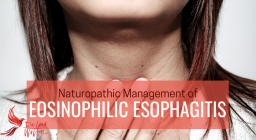
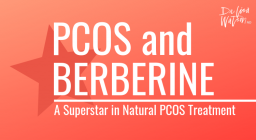



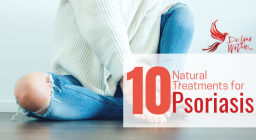
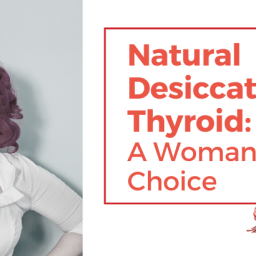
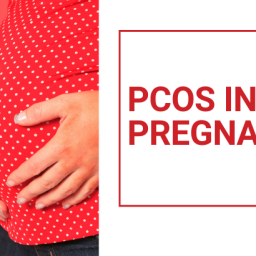
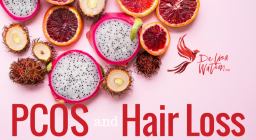
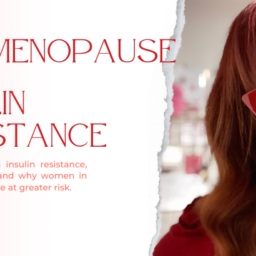
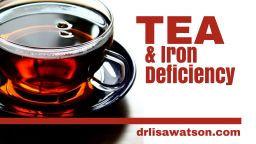
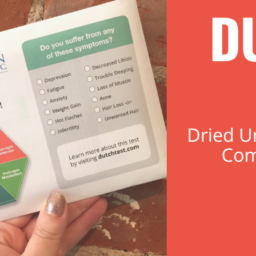
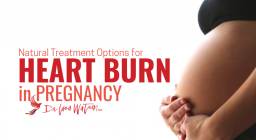
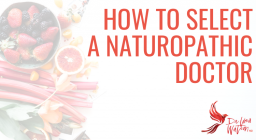

Dear Dr Lisa
I had had few bad attacks of biliary colic.
The other day I had veggie cabbage and that day I suffered another bad attack.
Now I know a lot of things from your writings.
I’m a lot better now.
Thanks and many thanks to you.
Hi Dr. Lisa I also have gallstone for 2 years now the information in your post helps me a lot.. Thank you
Hello Dr. Lisa,
Can you tell me whether the below product is your recommended Enteric-coated peppermint oil?
Heather’s Tummy Tamers Peppermint Oil Capsules (90 per bottle) for IBS
http://www.amazon.com/Heathers-Tummy-Tamers-Peppermint-Capsules/dp/B0002UDK4Q/ref=sr_1_1_a_it?ie=UTF8&qid=1457767821&sr=8-1&keywords=peppermint+oil+enteric+coated
Thanks,
Kevin
Yes. That is one brand of enteric coated peppermint oil. ~Dr. Lisa
Dr Lisa
I have gall bladder stones for more than 10 years and it only became worst Recently. I went online and and i saw the olive oil flush, the moment i under go that process everything suddenly become worst.
But. When o came to your site i was able to know what to eat and what not to eat.
Thank you so much.
I have gallstones but if i am careful with my diet, they dont cause a problem. But i want to take flaxseed oil , i can take it with cottage cheese as well. but i know that the oil can stimulate the gall bladder. what do you suggest
I drink coffee everyday but once in a while if I drink more then one cup a day I will get an attack. So I want to try green tea instead. Is green tea a bad idea?
I’m happy to have helped. The olive oil flush is a TERRIBLE idea and I hope that more people will realize that it can cause a lot more problems than benefits!
~Dr. Lisa
Some fats are essential for encouraging smooth movement of bile out of the gallbladder and preventing further stone formation. Don’t fall into the trap of low fat – try small amounts of the oil and build up, but don’t avoid it all together.
~Dr. Lisa
I would like to know what are the vegetables that people can eat when they have gallstones?
Just about any vegetables are helpful for gallstones. We know people who eat more fruits and veg are less likely to develop gallstones. Leafy greens are especially helpful for the liver and gallbladder and are encouraged. I’d consider avoiding avocado (actually a fruit!) because they are high in fat. Some people find raw cruciferous vegetables a challenge – broccoli, cauliflower, cabbage – but cooked they are generally ok. Hope that helps!